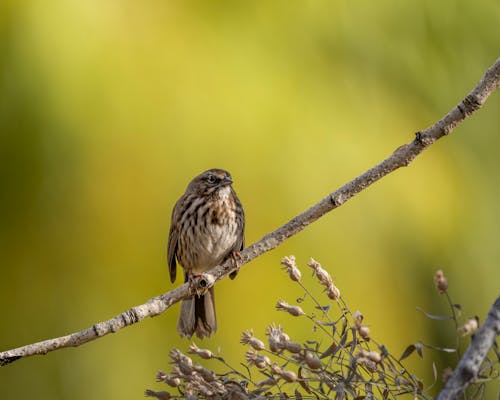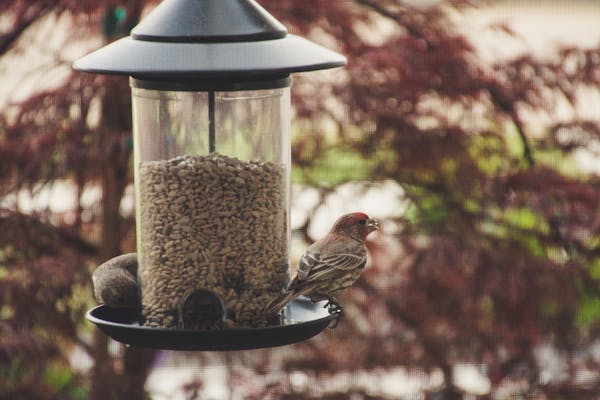The Best Finch Food
Finches are energetic, social birds that add a lively spark to wherever they call home.
A balanced diet is vital for your finches health and happiness.
Kennel behavior:
Nutrition that supports their activity, plumage appearance etc.
In this guide, we dive into the best diet for finches with practical tips and insights that will ensure your feathered pals are thriving.
How Much Food Do Finches Need to Eat?
Well, fin’ches are naturally small seed eating birds in the wild and not all species just eat seeds!
They need a variety of nutrients, such as carbohydrates, proteins, fats, vitamins and minerals.
A wide variety of the diet not only fulfills their nutritional needs but also mimics what they would have in a natural habitat.
Seeds: One of the Finch Food Essentials
Seed Mixes
Seeds appeal to fin-ches by virtue of their nature
- seed blends sold in pet stores typically allot seasonal varieties such as millet
- canary seed
- or nyjer seed.
Such mixes form a vital part of their diet but should not be the sole component.
Variety is Key
Give different seeds to the same bird to find a multitude of nourishment.
- Millets gets the first preference
- Ensure it is rotating with flax seeds
- Sesame seeds to avoid nutritional deficiencies.
Freshness Matters
Buy fresh seed mixes and keep them in sealed containers.
Stale seeds then lose their nutritional value and can even be hazardous for your bird.
Pellets — The Happy Medium
Nutritional Benefits
Pellets These are specially designed types that would supply birds with a good overall balanced diet.
They have vitamins and minerals that fin-ches prefer unlike seeds.
Transitioning to Pellets
If your fin’ches are used to eating only seeds, gradually train them to eat pellets.
- Pellets should be mixed with seeds at first
- The percentage of pellets increased progressively.
Quality Counts
Invest in pellets formulated for fin-ches and high quality.
Steer clear of those with artificial colors, flavors or preservatives.
Fresh Fruits and Vegetables
Fresh fruits and vegetables provide vital vitamins and minerals for your fin-ches.
- Fruits for Finches
- Apples (without seeds)
- Bananas
- Grapes
- Berries (blueberry, strawberry)
These fruits are precisely harmless and offer natural sugars and hydration. Rinse them well before serving.
Vegetables for Finches
- Spinach
- Kale
- Broccoli
- Carrots
The more dark green the greenery, the more nutrient dense they are. Chop vegetables into small pieces that are easy to eat.
Avoid Toxic Produce
Do not feed finches avocado, onions, or garlic because they are considered poisonous to them.
Protein Sources
During these times (molting or breeding) protein is especially important as well.
- Egg Food
- Mashed hard-boiled eggs with their shells provide a calcium rich protein treat.
- Egg food is extremely good for breeding finches.
Insects
Finches eat small insects in the wild. You can mimic that by sprinkling dried mealworms or this bird safe insect treat.
- Legumes
- For a healthy source of protein
- You can add some cooked lentils or chickpeas.
You must make sure that they are simple and not flavored.
Vitamin and Mineral Pack
Cuttlebone and Mineral Blocks
They help maintain calcium which keeps their bones and beaks healthy. Put them in a cage where the fin-ches can easily reach
Vitamin Supplements
Mix in avian multivitamin drops to their water if you saucy your finches way too much blandness on the dish.
Be judicious, and supplement only with your veterinarian’s approval.
Hydration is Essential
- Clean and fresh water must be made easily available.
- Make sure to change out the water every day
- So that materials such as bacteria don’t start piling up.
- If you have finches who like to take baths
- Then make a shallow dish of water available for them to splash in!
Treats in Moderation
Treats are a great way to bond with your finche’s, but must be moderated to prevent obesity & nutritional lack.
Millet Sprays
Finches love to snack on millet sprays. Give them occasionally as a treat and/or during training.
Honey Sticks
Another option for a treat (but should only be given in small amounts) are honey sticks.
Feeding Tips for Finch Owners
Regular Feeding Schedule
Establish a time each day to feed your fin-ches Fasting can alleviate stress and guarantee that they consume regularly.
Monitor Food Intake
Monitor the daily food consumption of your fin-ches. Health problems can mean drink and food disinterest.
Keep Feeding Areas Clean
Take away leftover daily, particularly fresh produce to avoid spoilage. Monitor and Change Food Bowls Cleanliness
Feeding Mistakes You Should Avoid
Over-Reliance on Seeds
It’s easy to become malnourished on a seed only diet.
Various seeds have to be ensured with combination of other food groups at all times.
Skipping Fresh Foods
Fruits and vegetables are a basic need for every balanced diet. Don’t take them for granted.
Serving Preserved Human Foods
Do not feed finches junk foods like processed treats, salty snacks, and sweet items, as these will harm your finch’s health.
Conclusion
The secret to happy and healthy fin-ches is, of course, a diverse and species-appropriate feed. Add seeds, pellets, fresh fruits and veggies as well as the occasional treat to keep your birds full of life and energy.
Notice their preferences, track their health and give them lot of love. And very often, a well-fed finch means happy fin’ch and your efforts will forge an even tighter connection between you and these delightful little companions.
If you do it right, feeding your fin-che’s is both an enjoyable task and also one that benefits their life and yours. Whether you just got one or two new fin-ches or are looking to refine your feeding routine, this guide has all the information you need to get it right.
